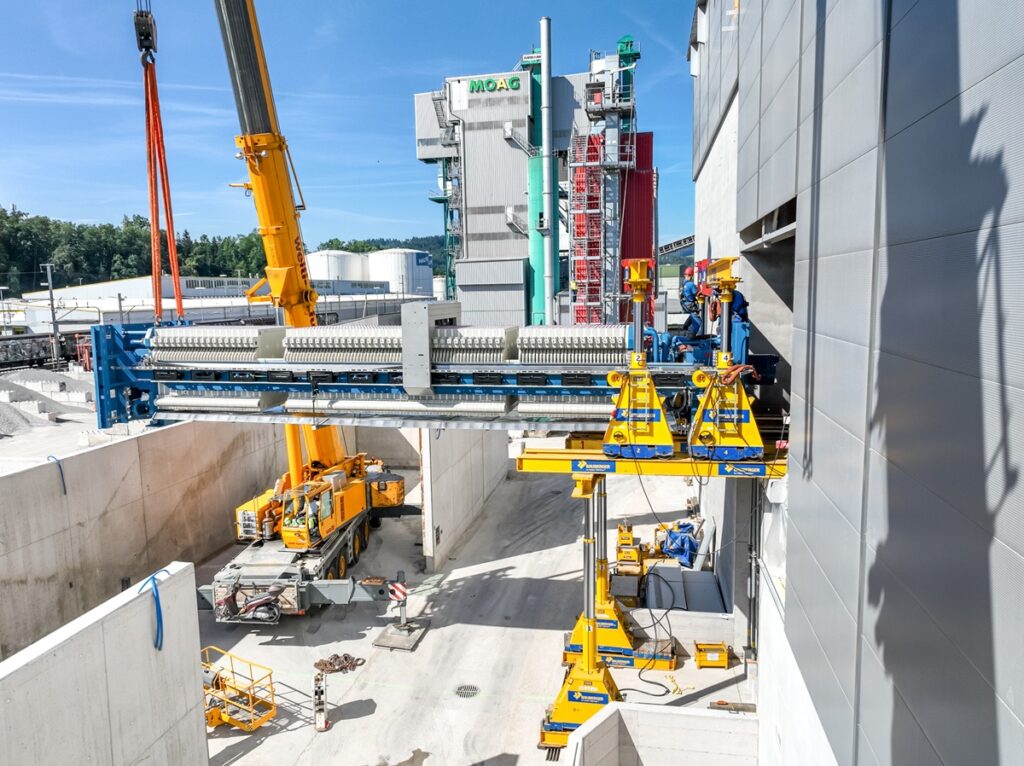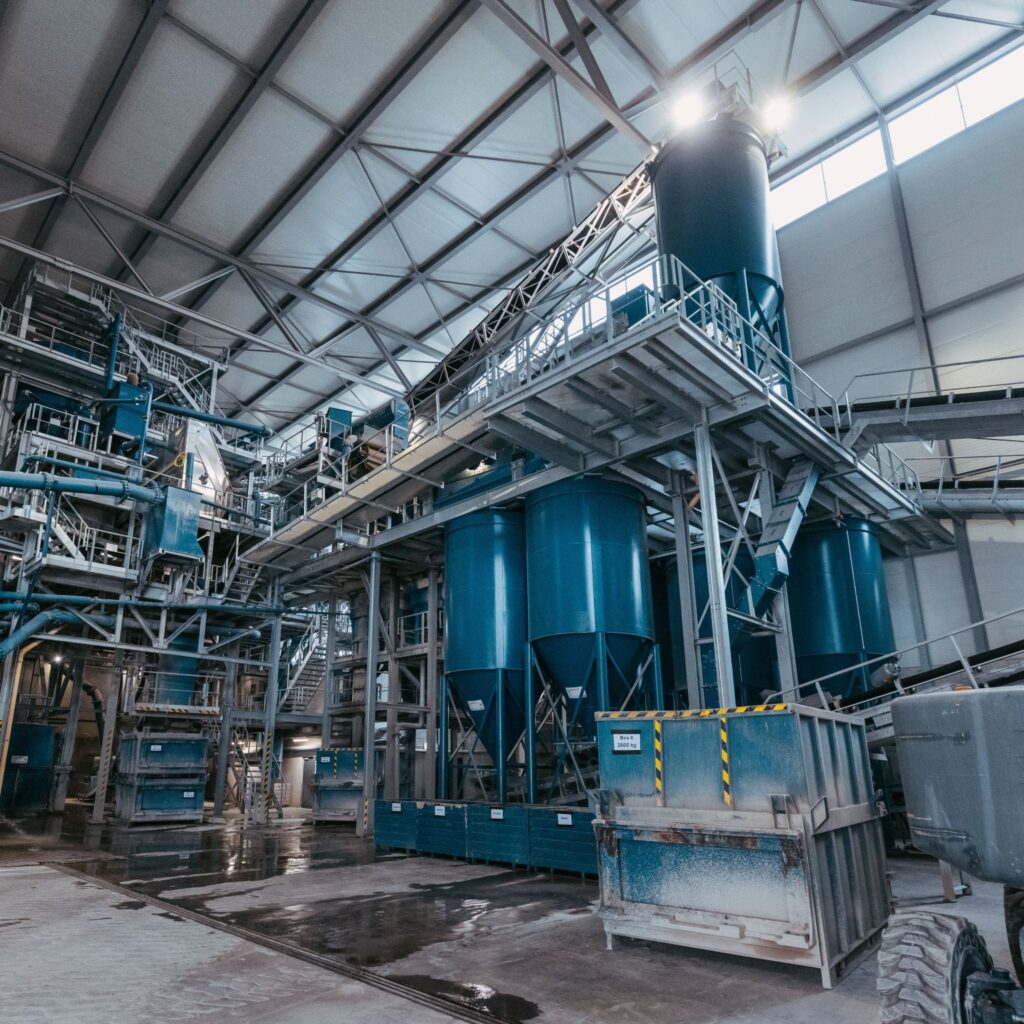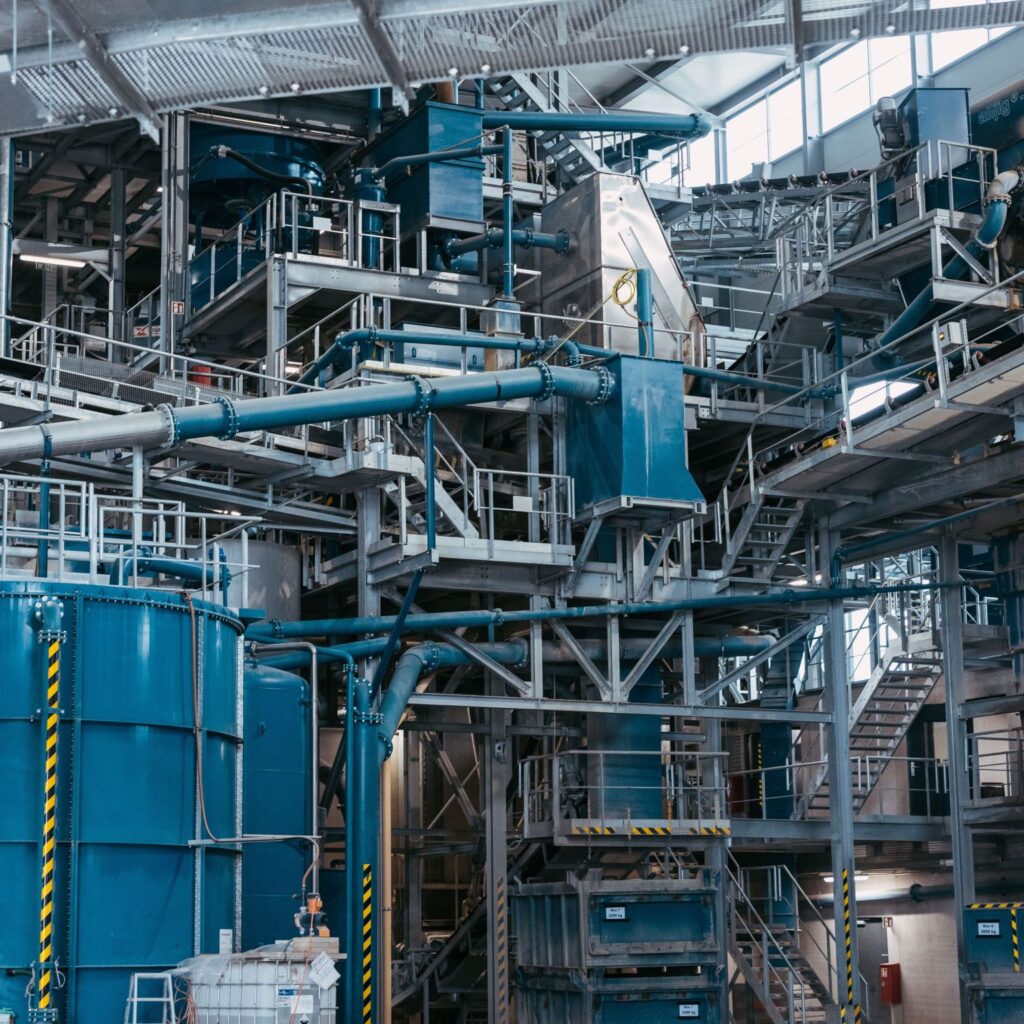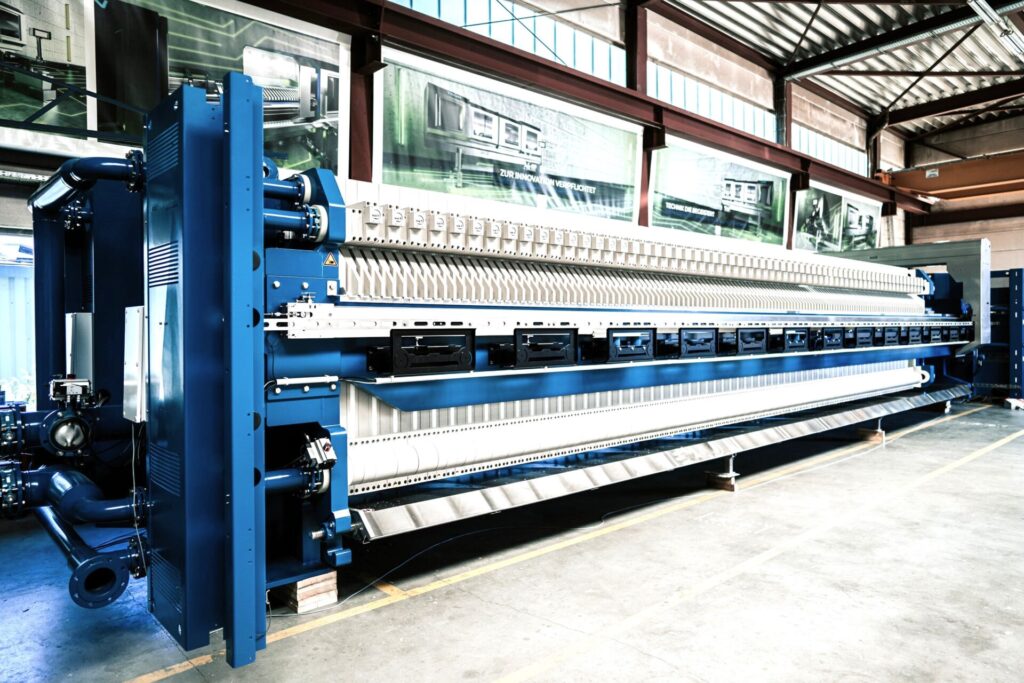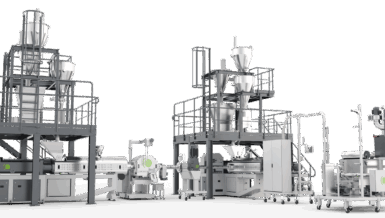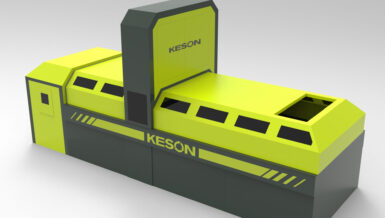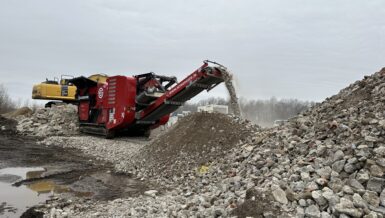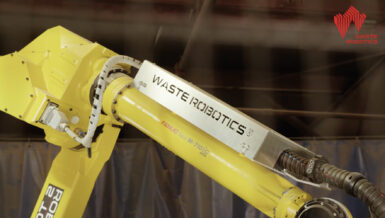In Eastern Switzerland, an innovative recycling center demonstrates how circular economy principles can be effectively implemented. At the heart of the facility is a chamber membrane filter press from MSE Filterpressen GmbH, which makes a significant contribution to the recovery of mineral construction materials through precise dewatering technology.
Resource Conservation as a Guiding Principle
Against the backdrop of depleting primary resources and growing environmental regulations, the recycling of mineral construction materials is gaining increasing importance. The Recycling Center Ostschweiz (RCO) exemplifies this trend by processing around 200,000 tonnes of contaminated excavation and demolition material annually. The goal: to return valuable substances to the material cycle.
A central element of the treatment process is sludge dewatering, which is performed by a chamber membrane filter press from MSE. Measuring 16 meters in length, operating at 15 bar, and featuring a filter area of approximately 850 m², it ranks among the most powerful systems of its kind in Europe. The result is a filter cake with a high dry solids content – a key requirement for environmentally sound reuse of the recovered minerals.
Technological Features at a Glance
The filter press is equipped with numerous automated functions, including:
- Automatic cake discharge assist (vib-rator)
- Automatic drip tray system
- Automatic cloth washing system
- MSE 2FAST discharge technology
- Industrial router for remote mainte-nance
- Membrane rupture detectors
- Real-time residual moisture monito-ring
Sensors continuously monitor the moisture content of the sludge. Based on this data, the dewatering process can be dynamically adjusted – especially beneficial when input material properties fluctuate.
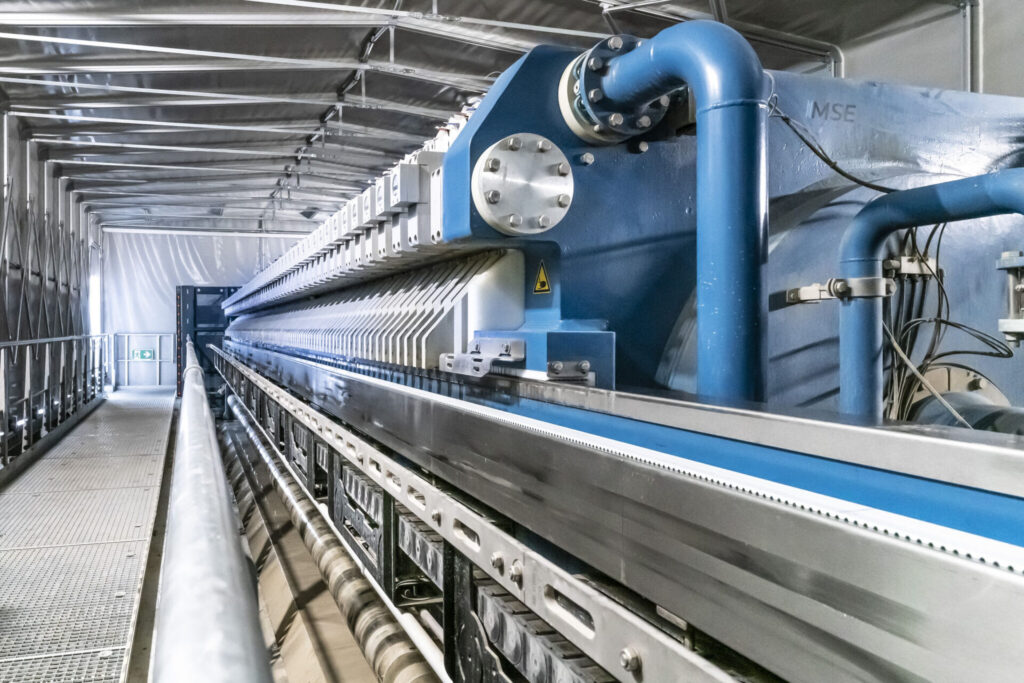
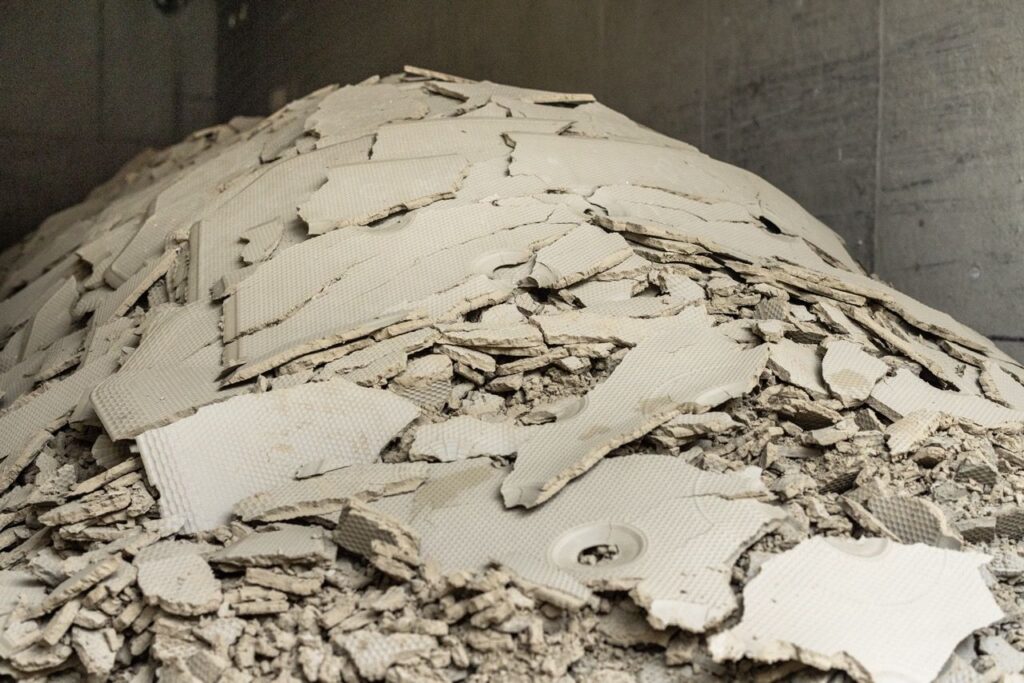
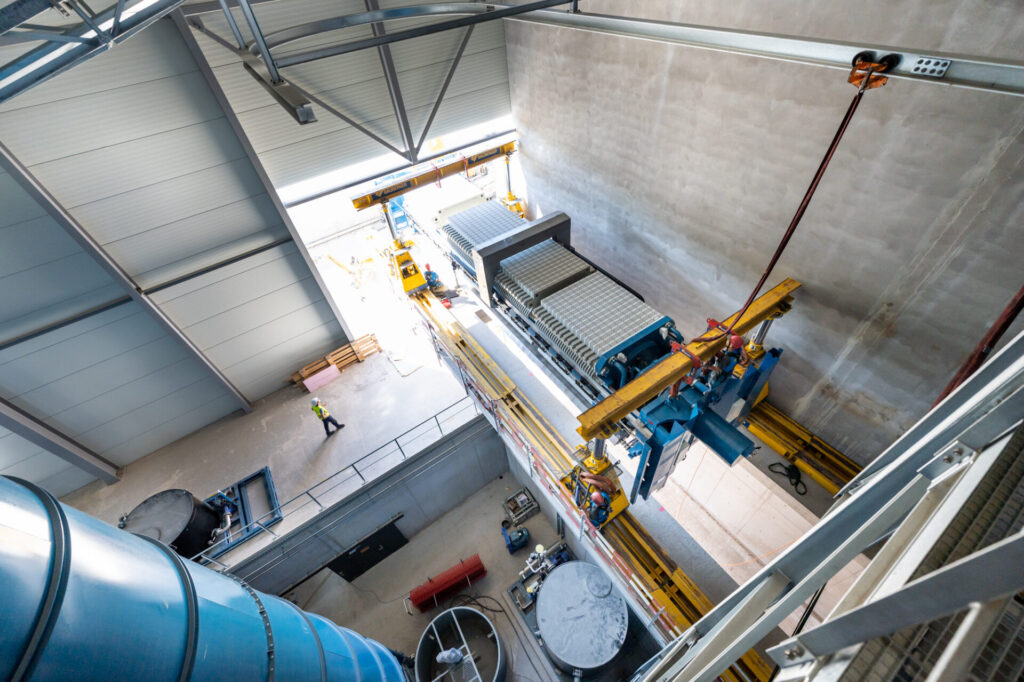
Sustainable Water Management
Water handling at the site follows circular economy principles as well. Rainwater is collected, treated multiple times, and reused within the process. This reduces both the demand for fresh water and the overall environmental impact. Through precise separation, the filter press enables the recovery of mineral solids, which are then reintroduced into the construction industry.
The dewatered filter cake is primarily used as a secondary raw material in the cement industry. Additional portions are utilized in landfill construction – a closed-loop system with clear ecological benefits.
Installation Challenges
Integrating the system into the existing infrastructure posed considerable challenges: the approximately 85-tonne filter press had to be lifted and installed with millimeter precision at a height of 6.5 meters inside the facility. This required not only detailed logistical planning but also flawless coordination across all trades involved.
Outlook
The implementation at RCO is a prime example of how technical innovation can help tackle global challenges. By deploying state-of-the-art filtration systems – such as those developed by MSE Filterpressen GmbH – it is possible to conserve primary resources, recover valuable secondary materials, and reduce environmental impacts. A model with high potential for broader application in the construction sector.
